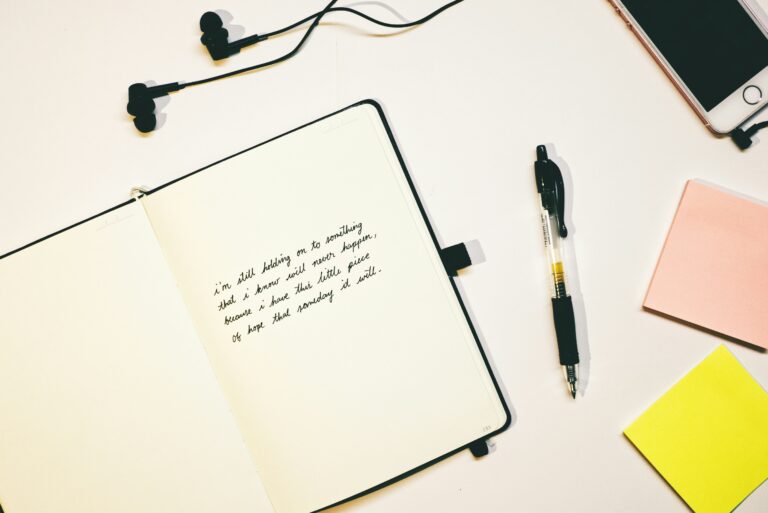London Book Fair: Advice for Writers

It’s easy to overlook London Book Fair as a trade show for the publishing industry, but it’s also a fantastic event for writers; as well as the opportunity to see the entire publishing industry under one roof, LBF also offers a packed programme with keynote speakers, author talks and panel discussions.
The Author HQ theatre is always popular, with a packed programme of speakers covering everything the writer needs to know, from building your writing community to self-publishing and keeping up with social media trends.
It was standing room only for Tips From Industry Experts: How To Make Your Work In Progress Stand Out. Packed with high quality creative writing advice, the discussion featured Anna Davis, Founder & Managing Director of Curtis Brown Creative Ltd, Dr Alexia Casale, Course Leader & Senior Lecturer, MA Writing for Young People at Bath Spa University/author with Faber&Faber and Viking Books, and Sarah May, Writer and Creative Writing Tutor at Faber Academy. The session was chaired by Magdalene Abraha, Head of Editorial and Marketing at Jacaranda Books.
Magdalene Abraha: What’s your advice on the things writers should consider when committing to their first draft?
Dr Alexia Casale, Bath Spa: Don’t try to make your first draft perfect – it’s ok for it not to be the best thing. Focus on getting something down so that you can examine it and see what’s right and what’s wrong. So finish the book and see what you’ve got.
Learning how to write a whole book is a skill – once you’ve achieved that, then you can worry about making it good. So get the first draft down – it gives you confidence to edit it.
Sarah May, Faber Academy: You have to write your novel more than once – you’ll probably write it 8 – 12 times, so be ok with that. You can’t compress the writing and editing process into one go. Your first draft is exciting, it’s an explorative, private draft. Let yourself go – what comes out on the page is the you-ness of you. The end of the first draft is when you start working on it. The first draft is for you – so don’t send it out until the third or fourth draft.
The uniqueness of your writing process is always evolving, it’s not static. Find your best practice and process. Form good writing habits – especially for a novel, it’s a marathon not a sprint. Understand how you work best as a writer. Your first draft is always a mess, so don’t share your work with anyone until you’re on the third or fourth draft.
Anna Davis, Curtis May: Writing is an emotional roller coaster. It’s hard to keep a distance and maintain perspective, so pause and take time. Print your work out so that you can see it differently, or change the font to physically see it differently on the screen. Pause after a draft and come back to it – but only leave it for a couple of weeks at most, as it’s hard to hold an entire novel in your head for too long.
Your first draft is about writing your way through the story, then the second draft is figuring out the big picture. The editing stage is often when people start floundering. So get clear on figuring out what needs your attention. Read your first draft and be ok with the pain of it being an utter disaster. It’s completely normal for writers to feel like this. Figure out how to come back at it and make it better.
Alexia Casale: Bath Spa: From my creative writing teaching, I’ve learned a lot about being a writer. Critiques, workshopping and sharing early drafts allow you to benefit from other writer’s input. Ask for the kind of feedback you want, whether you want them to tell you all the good things, or tell you what’s not working.
Feedback from other writers make us a better writer. This could be with an online workshop group, local groups or creative writing courses – find other writers and work with them. Read widely, then choose the advice that works for you. Every writer and every book is different – so what works once might not work again. Focus on the tools, not the rules
The emotional side of writing is hard, so be prepared. But you’ll never get to your dream if you don’t do this. You’ll never get to be the person you want to be as a writer – you need to write to become a writer. If not now, when? If you don’t chase your dream today, when?
Magdalene Abraha: The writing process is individual to each writer, but writing can be lonely and isolating. How important is it to have a reading community, and who should they be?
Anna Davis Curtis Brown: Not everyone needs a reader or group, some people prefer to work alone. But good readers can be generous and astute in their feedback, so are usually better than family and friends. Share your work in online groups to find a trusted reader or group where you can critique and discuss your work and talk about writing.
When you find a trusted reader, keep in touch and be generous with your own feedback. When you’re looking for feedback on your full manuscript, you don’t want to play your trump card too soon. Their first read will be the most valuable, so don’t ask for a full read until you know you’re ready and have taken the work as far as you can. Save other readers for subsequent drafts.
Sarah May, Faber Academy: Share in a controlled environment and get feedback in a controlled environment. Poor feedback can trash your confidence, and you need to feel safe as a writer.
Taking a course or joining a writing community is a commitment to yourself – it’s motivational and makes you accountable to yourself and also to the other writers who have expectations of you.
If you’re thinking about getting an agent or publisher, you’ll need to get used to being critiqued and workshopped and acting on that advice. So workshopping with a writing community prepares you for that process of questions and unpicking. It makes you a more robust and resilient writer and better prepared for the writing process.
Magdalene Abraha: When it comes to pitching to agents and publishers – what can writers do to make their story stand out? How will you know when your book is ready?
Anna Davis, Curtis Brown: Go through your feedback drafts before you submit to an agent – don’t look to them for feedback. Get your opening strong – the first chapter is about getting the story going, getting your characters into place, introducing the protagonist. Agents look at the first/second page, so you need to hook them with a strong opening.
When it comes to a synopsis, I favour one page. Even agents who ask for two pages like a one pager. This should be the broad strokes of the story presented in a readable way. You don’t want to put all the details, the sub plot etc. Write a one line pitch that whets the appetite, a sentence that sums up the heart of the novel. Say what genre you’re in, and give the agent a steer on the work. Some novels have an obvious hook, but a sensitive literary novel might be harder.
Your pitch letter should have three concise paragraphs:
- A paragraph about your novel: Two to three sentences to show the agent the way in/the hook. This could include comparison novels, where you see your book as being like others. But only if there’s a clear comparison. The main thing is what the story is about, what you’re excited about.
- A paragraph about yourself: Information that’s relevant to your writing, any professional relevance and any courses taken, especially selective ones from writing schools. Also mention any competitions you’ve won.
- A paragraph on why you’re choosing to send your work to this agent. So personalise your pitch. Be strategic and research the right agents. Submit to four or five agents to start with. If you get no responses or all rejections, then rethink your pitch package and start tweaking.
You can get your pitch analysed or looked at on courses. But the book is the most important thing – get that right first.
Sarah May, Faber Academy: It’s an instinctive thing to know when your book is ready for submission. You’re tuned in to yourself, your process and practice, you know yourself as a writer. Once it’s been workshopped and you’ve done rewrites and edits, leave it aside so your unconscious writer’s mind can get to work. Give yourself some distance to be able to see what needs fixing.
There are lots of processes to go through – you have to push yourself to go as far as you can go. Writing can be exhausting and needs re-energising, so readers and feedback can really help.
A great pitch package demonstrates the story of your book, what your novel is about. Can you say what it is in 26 words by end of first draft? That’s a good place to get to.
Alexia Casale, Bath Spa: I’m a terrible pitcher – I did free events, courses and volunteered to be an audience participant. So work at learning how to pitch and be willing to fail as you go and fall on your face. My error was talking about the plot. The story is the character and plot – something is happening to a person, and we care about how they change.
London Book Fair 2025
The London Book Fair runs from 11th-13th March 2025 at Kensington Olympia and their one-day Writers Summit is held on 10th March at the Novotel West, Hammersmith. For more details and to book tickets click below.






